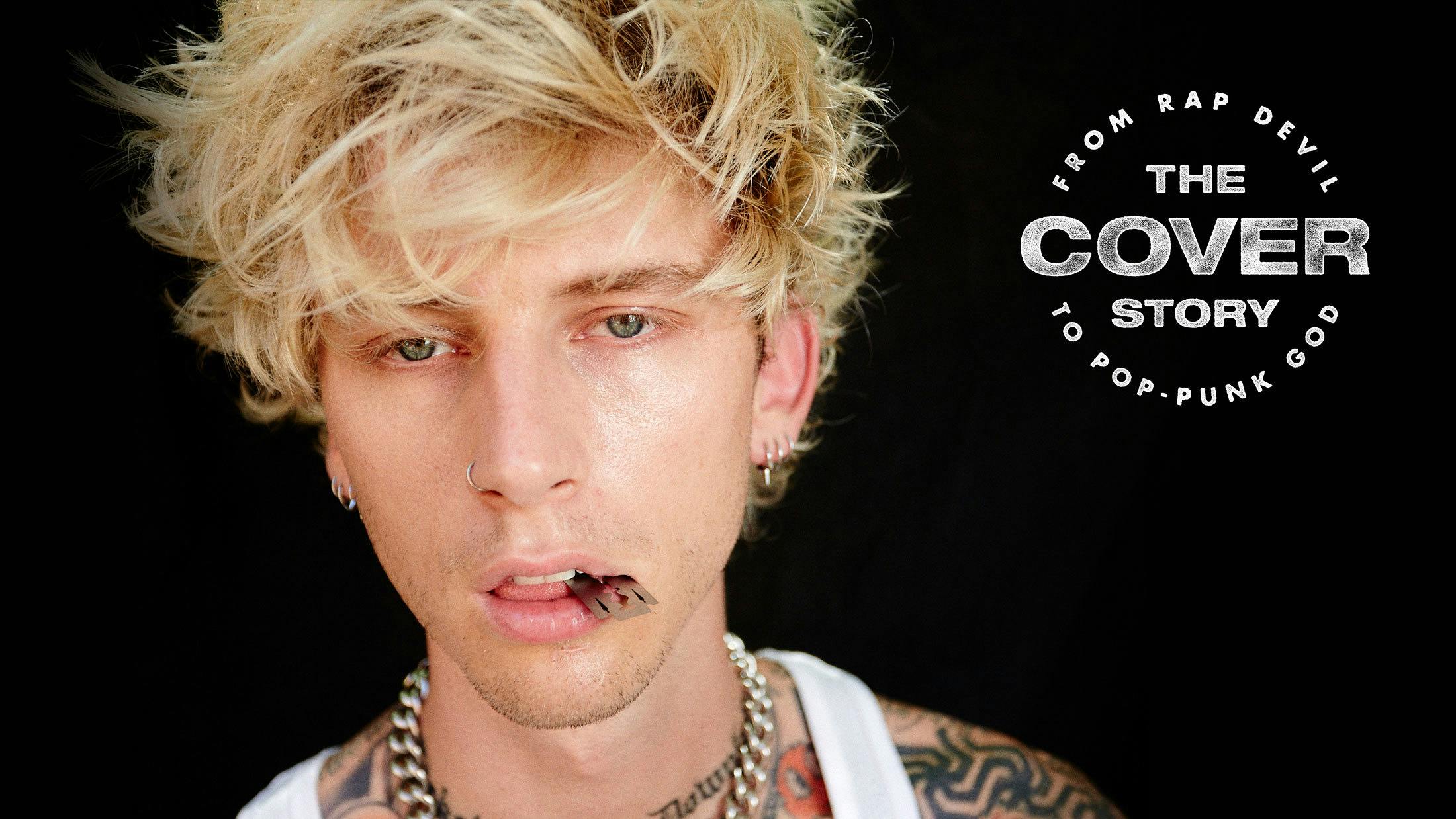Arguably the most personal song is the record’s stunning centrepiece, Lonely. Culminating in an audio snippet of the final conversation the musician had with his father James (who sadly passed away in July this year), it reveals that MGK had a “dangerous birth”, with his umbilical cord “stuck around his neck”.
“I was encouraged by someone to ask about my life, knowing that this could be the last time I was able to find out certain truths,” Kells says, his voice taking a considerably quieter, softer tone. “I think I ultimately chose to put it on the album because it can maybe help people understand my psyche a little more, that even before I came out of the womb, I was already trying to take myself out of this world – almost feeling like I shouldn’t be here or something.”
He refers to a key line in Bloody Valentine that perfectly sums up his persistently bleak headspace: ‘I’m over-stimulated and I’m sad / I don’t expect you to understand.’
“I do this thing where I bury how dark my thoughts are and don’t use my platform to show how low and depressed I feel when the cameras are off,” he says. “I fake my smiles and my happiness, and because of those things, people move on past my issues and go on to the person who’s waving at everybody saying, ‘Hey, look at me, I’m sad.’”
While his honesty is out there for all to hear, that same openness hasn’t always applied to what’s within. It now feels, though, like MGK is beginning to inch towards a place of inner-healing.
“You’ve got to understand that there was a large part of my career, and my life, where my heart was covered with stone, ice and barricades,” he explains. “I didn’t give a fuck what my heart was saying, because I didn’t have a heart that was open to everybody – and not even to myself – for a long time. I was almost feeling like I was lobotomised from my own feelings, or my own art. I just went to sleep and didn’t wake up for a long time. And I don’t blame anybody other than myself, but I’m very much awake now. Hopefully I can stop other people from having to learn that lesson, and I can be the example of how to be free in your expression.”
And it’s been quite the odyssey to get to this point…
